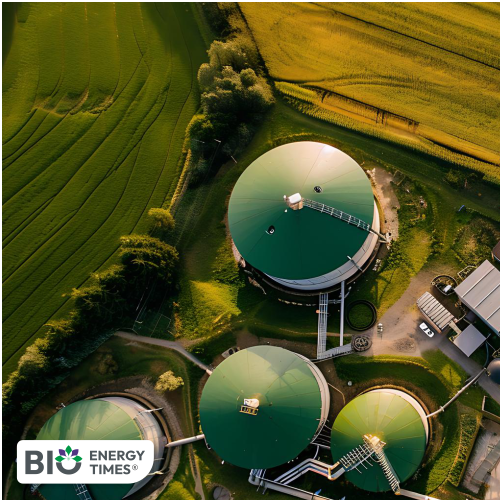Manila: A UK-based company has opened a new rice straw biogas facility in Laguna, creating a two-hectare hub capable of processing 10,000 metric tons of rice straw each year into methane, biochar, and fertilizer, reports Philstar Global.
Straw Innovations Ltd. developed the P235 million facility in Pila in partnership with the Southeast Asian Regional Center for Graduate Study and Research in Agriculture (SEARCA), Ashton University in Birmingham, and the UK government’s Innovate UK agency.
During the launch, Straw Innovations founder Craig Jamieson said, “This project shows what can happen when communities and science work hand in hand to solve real problems.”
Speaking in an interview on the sidelines of the event, Jamieson highlighted the market potential in the Philippines, estimating annual revenues of around half a million pounds for the business. He explained that with few competitors in the sector, their model is among the first to demonstrate how rice straw can be collected and reused profitably and sustainably, rather than being burned or left to rot in the fields.
“We are pioneering a new way of using agricultural waste,” Jamieson added, noting plans to expand operations in the future. He said the company is in discussions with banks and investors to reach other rice-growing provinces, including Nueva Ecija and Isabela, while acknowledging the challenges posed by typhoons and local regulations.
SEARCA program specialist Lichelle Carlos stressed the importance of managing rice straw properly. “Collecting rice straw instead of burning it can lower emissions and create useful products for farmers,” she said. Studies from SEARCA indicate that converting rice straw into bioenergy or organic fertilizer could reduce 24 to 38 percent of greenhouse gas emissions from rice farming.
Carlos also noted the difficulties farmers face in gathering rice straw, which is often scattered across large fields. “Because of the effort and cost involved, many farmers choose to burn the residue after harvest,” she said.
According to SEARCA, the Philippines produces between 14 million and 28 million metric tons of rice straw each year, offering both a waste management challenge and an opportunity to develop cleaner, sustainable uses for agricultural by-products.















